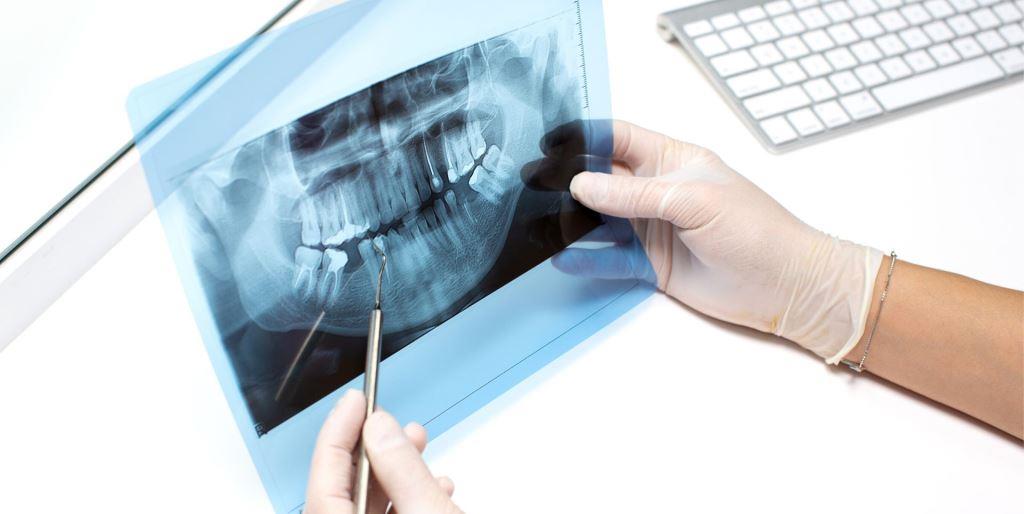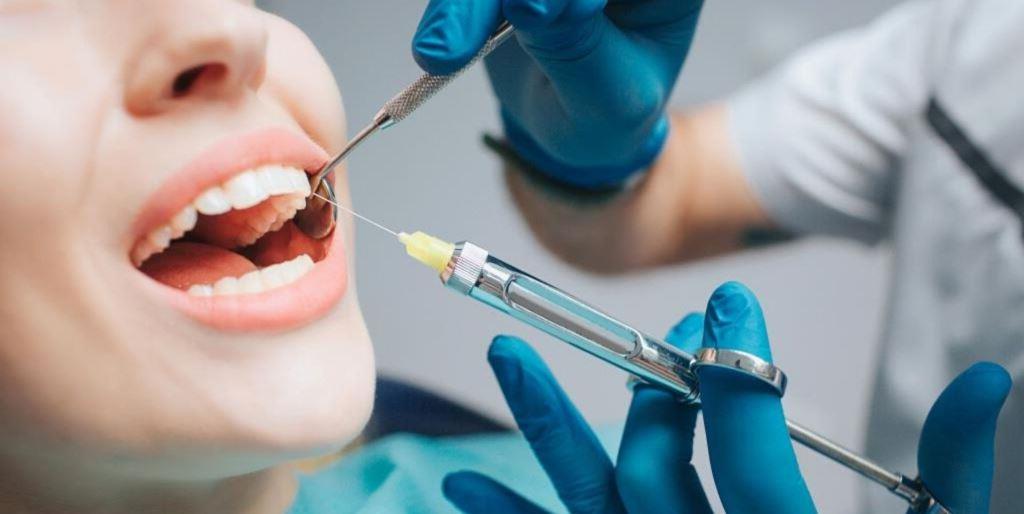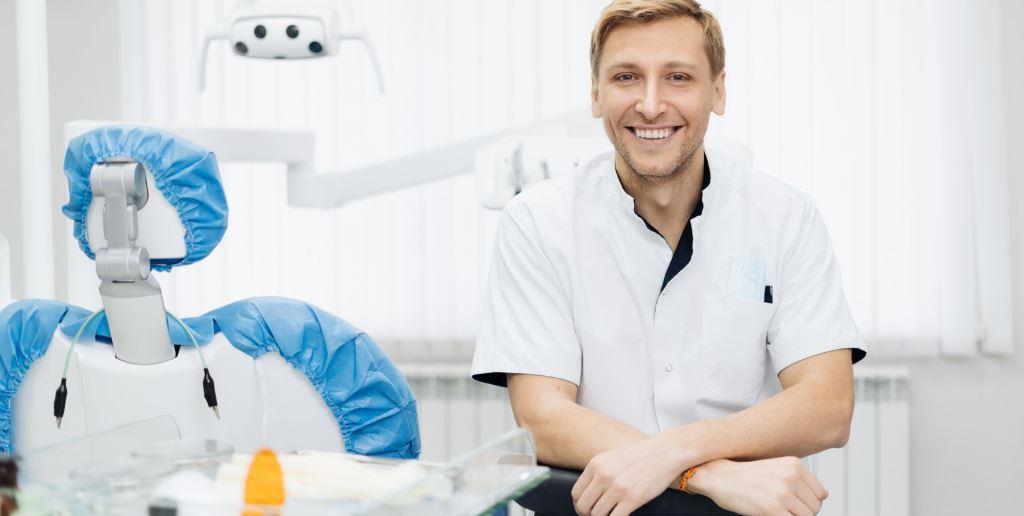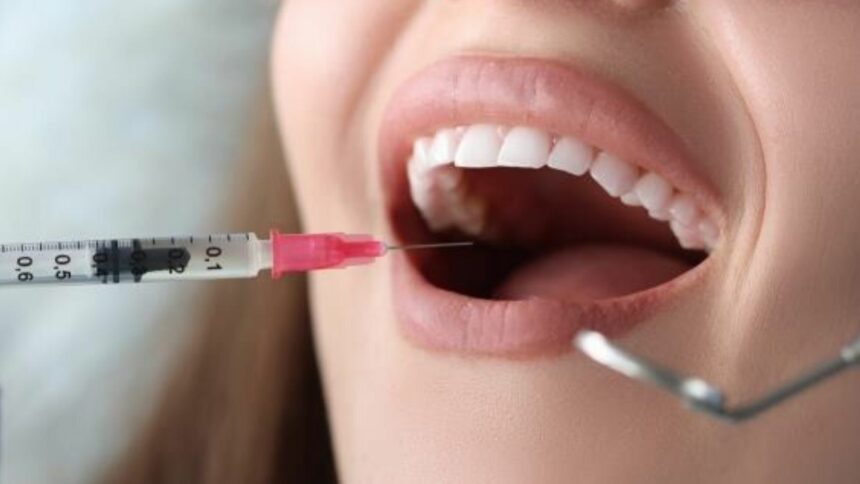Are you one of those people who, as soon as they enter the surgery, ask the dentist for an anaesthetic? Rest assured. We trust that the fear of all sorts of procedures in your mouth is great, but trust us - dental anaesthesia at the dentist in the UK is not always necessary. However, as much as it is, there are a whole host of situations where it really does improve patient comfort.
Read when it is needed and when it is not. What it involves, whether there is anything to fear - and just as importantly - how much it costs.
Is dental anaesthesia in the UK always necessary?
Contrary to what your fear may tell you, anaesthesia at the dentist is not always necessary. Sometimes cavities are not deep, but have only developed on the surface of the tooth. Then you certainly won't feel any pain.
It is worth trusting your dentist - and also make an appointment that if any action makes you feel uncomfortable, the dentist will immediately stop and administer the appropriate dose.
ATTENTION If you are paralysed by fear before every visit to the dentist's surgery, you may be suffering from dentophobia. Read our article - you'll find tips on how to deal with it: "Fear of the dentist - what is dentophobia and how to deal with it?".

When will you not avoid anaesthesia?
Of course, if that is your wish, you do not have to use it at all. However, it is worth knowing that some treatments can be intensely uncomfortable! Examples? Tooth extraction (e.g. of eights) and root canal treatment. These are serious procedures where anaesthesia is necessary, even for the safety of the dentist!
What are we talking about? It is well known how the human body reacts when something hurts it - makes movements that are absolutely beyond your control! You often hear of cases where the dentist has been bitten on the finger or kicked. The patient experiencing great discomfort can be quite a hindrance, as well as a threat to the success of the treatment itself.
Therefore - if your specialist recommends anaesthesia, it is worth listening!

Anaesthesia at the dentist - how does it work?
To talk about the effects of anaesthetics, we need to explain what the sodium channel is. It's very simple - this element is responsible for transmitting pain information to the brain. Where is it located? In the nerve cells.
Anaesthesia inhibits its action. It usually lasts for about 2 hours, after which its functions return at 100%. This is why it is so important to take painkillers in time so that they can take effect when the anaesthetic at the dentist 'lets go'.
Every patient has a different pain tolerance. Therefore, it is possible that the dentist may have to supplement/administer an additional dose of anaesthesia during the procedure. Hence the importance of the patient's communication with the dentist - remember, this one can't read your mind!
Are there contraindications to anaesthesia?
Yes! So when you visit your dentist, tell him or her about the medicines you are currently taking and anything you are allergic to. Don't hide anything - it's not in your interest.
Ignoring this can lead to serious complicationsand this is something that both you and your dentist would definitely like to avoid!
It is also important, in the case of women, to know that they are pregnant, even at a very early stage. And you can read more about dental treatment during pregnancy in our article "Teeth during pregnancy - how to look after them properly"

Dental anaesthesia at the dentist in the UK - how much does it cost?
In our clinic, simple anaesthesia is free of charge. In our opinion, comfort during the procedure should not depend on your wallet!
Type of anaesthesia for which we charge £20This is SleeperOne computer-assisted anaesthesia. The very moment of injection is almost painless - which is why this solution is often chosen by people who are panic-stricken by needles. What's more, there is no unpleasant feeling of "spreading" tissues - SleeperOne is therefore a very comfortable method!
You can read more about this in our article: "Computer anaesthesia in the UK - what it is and how much it costs". IMPORTANT: Every patient is different and has different needs, so it is ALWAYS up to the doctor to decide when and what anaesthesia to administer during the procedure.
Don't be afraid of the procedure - come see us for an appointment
At our clinic, we know what to do to make the patient feel comfortable. You don't have to fear anything - you can rest assured that we will put your comfort first! Make an appointment and tell us what you need. Our specialists will implement the treatment you need, keeping you informed every step of the way.
Remember, the best way to avoid pain at the dentistThe key is to take care of your oral hygiene and have regular check-ups. Check out our articles: "Dental hygiene in the UK" and "(Not) proper oral hygiene - the 10 biggest mistakes" to make sure you are taking care of your teeth as you should.

